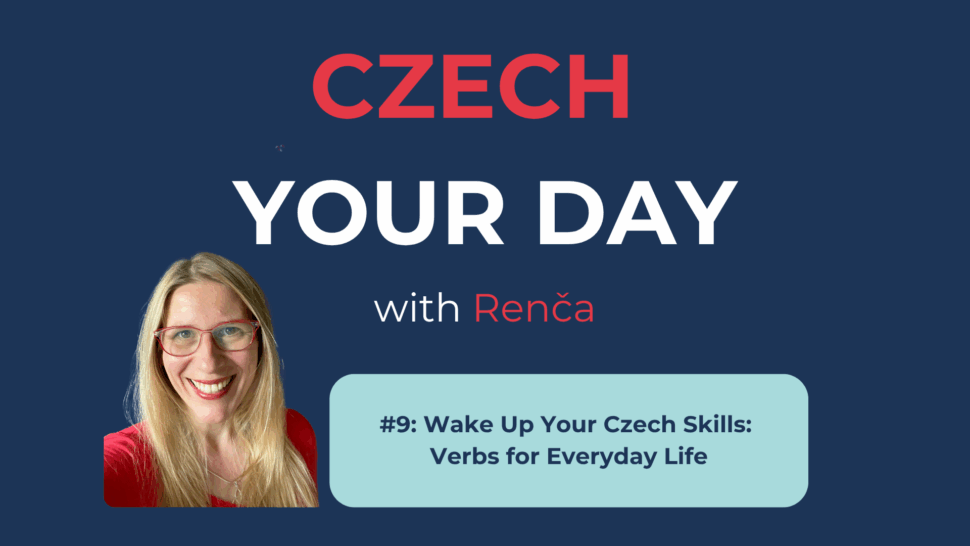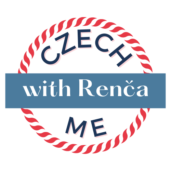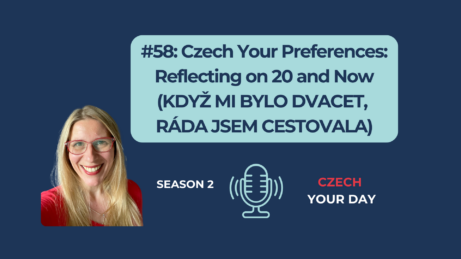Episode 9 (daily podcast CZECH YOUR DAY) transcript included

THIS WEEK’S TOPIC: WHAT TIME IS IT?/KOLIK JE HODIN?
THE TRANSCRIPT/HANDOUT IS DOWN BELOW
This episode is all about daily routine – from getting up, leaving for work to coming back home and going to sleep – all of that in Czech. And when you combine it with the previous episodes from this week, you can talk about your day with confidence and ease.
Starting the Day: Vstávat
To start off your day, you need to get up. The Czech verb for „to get up“ is vstávat. For example, „I am getting up“ translates to Já vstávám. Now, think about this question: When do you usually get up? Kdy obvykle vstáváš? For example, if you want to say, „I usually get up at half past four,“ you would say, Obvykle vstávám v půl páté.
Wrapping Up the Day: Going to Bed
Next, let’s talk about going to bed. „When do you usually go to bed/go to sleep?“ translates to Kdy obvykle chodíš spát? Using the verb chodit, you might answer, Chodím spát, and specify the time you go to sleep.
Commuting: Leaving and Returning from Work
And how can you express in Czech „to leave for work“ and „to return home“? „When do you usually leave for work?“ is Kdy obvykle odcházíš do práce? and „I leave for work“ is Odcházím do práce.
Returning home is expressed by using vracet se (it’s for the repetitive action). „When do you usually come back from work?“ is Kdy se obvykle vracíš domů z práce?
Getting Dressed and Brushing
Getting dressed in Czech is Oblékat se. When you use this verb, you don’t mention any pieces of clothes (you are just stating the fact you are getting dressed).
If you are interested in more such verbs, I recommend revisiting week one (episodes #2 – #4).
When it comes to grooming, like brushing your teeth, you use the verb čistit si in Czech. For instance, „I usually brush my teeth at half past eight“ is Obvykle si čistím zuby v půl deváté.








